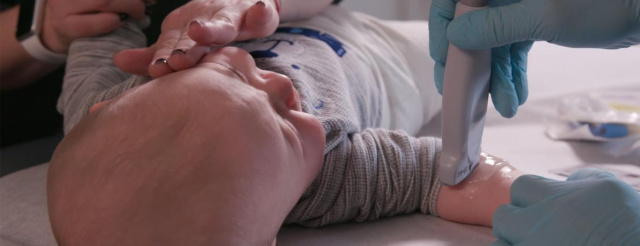
Ultrasound Guidelines for Paediatric Vascular Access
More than five million central venous catheter (CVC) lines are placed in hospitals each year, making it one of the most common invasive emergency room procedures. Although NICE guidelines for ultrasound-guided placement of central venous lines in adults and children were first issued in the UK in October 2002, Dr. James Bennett, Consultant Anaesthetist at Birmingham Children's Hospital, describes how the debate has since moved on from whether ultrasound should be used for vascular access, to what other information and safety assurances it can provide, especially in paediatrics…
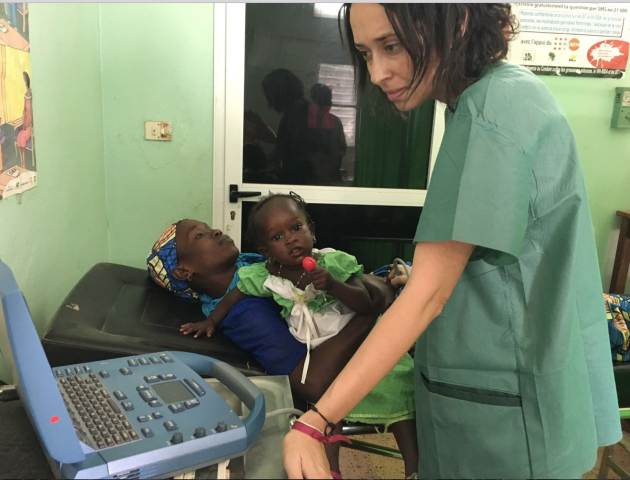
Spanish NGO Cirugía Solidaria Uses M-Turbo in Kenyan Health Mission
During the Summer of 2017, a group of healthcare professionals – the majority from the Hospital Clínico Universitario Virgen de la Arrixaca (HCUVA) in Murcia, Spain – travelled to Kenya in partnership with the Spanish NGO Cirugía Solidaria.They brought along surgical equipment – from beds to lamps to scalpels – to create a first-rate hospital set-up, most of which was donated by HCUVA. FUJIFILM Sonosite was pleased to support them by supplying an M-Turbo point-of-care ultrasound system for their trip. Angela Cepero Sonosite 2017-10-02.png "Over the course of two…
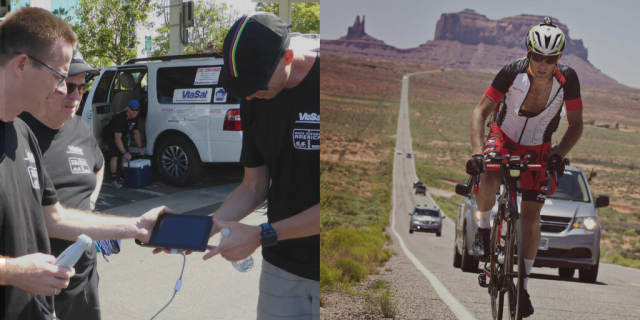
Sonosite iViz on the Race Across America
The Race Across America is billed as the world’s toughest bicycle race; a non-stop, coast-to-coast, transcontinental trek from Oceanside, California to Annapolis, Maryland. Racers cycle for over 3,000 miles across 12 states of frequently arid terrain, and climb 170,000 feet through three mountain ranges, with the fastest teams finishing in just over five days, and solo racers in under eight. Dr. Rüdiger Eichholz, a consultant anaesthetist at the private practise Medizi in Stuttgart (and keen amateur cyclist), joined the support crew of the winning eight-man team for 2017, armed with a…
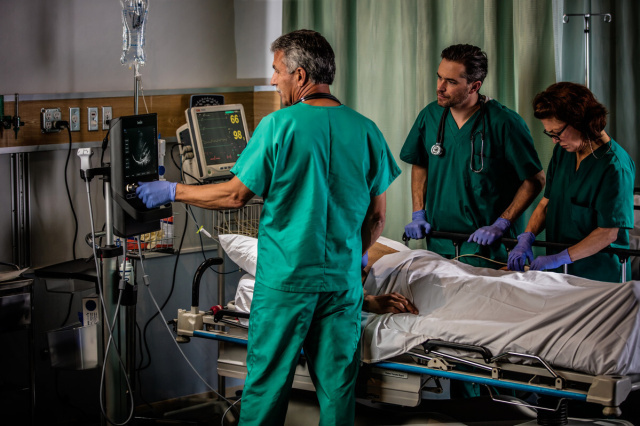
9 Reasons Ultrasound is Invaluable for Nephrologists
Point-of-care ultrasound is fast becoming a key instrumental technique in nephrology , supporting diagnostics and improving delivery of renal replacement therapy and subsequent vascular monitoring.Here are the top 9 reasons why nephrologists can't afford to ignore ultrasound-guided procedures and applications. 1. Kidney and urinary tract scans provide information about size, shape and echogenicity, as well as an opportunity to identify hydronephrosis.2. Patients with chronic kidney disease are often at risk of cardiovascular complications, such as left ventricular hypertrophy.3. CKD…
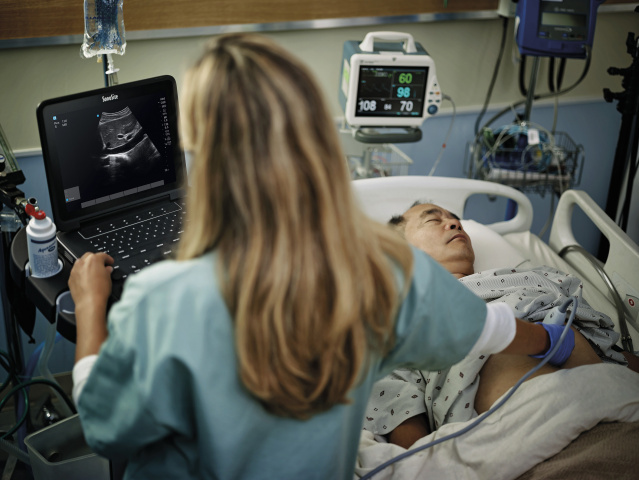
User Stories: Spreading Point-of-Care Ultrasound Hospital-Wide
What departments are the heaviest users of point-of-care ultrasound in an American-based hospital?The answer varies from hospital to hospital, but we usually see Emergency Medicine, Cardiology, Critical Care and Anaesthesiology rounding out the heavyweight users of bedside ultrasound.But what happens when a hospital wants to bring point-of-care ultrasound to different departments with different clinical applications? And what happens when a hospital wants point-of-care ultrasound in every department? With every doctor?If you’re in Germany, that hospital would be the Evangelisches Krankenhaus…
Clinical Chest Professionals, Here's Our Guide to CHEST2016
Has it really been a year already? We’re back in LA this week for another edition of CHEST, the premier clinical event for chest medicine in the U.S. We love CHEST because the show connects a global community around not just networking and new technology, but brings together new research, instruction and interactive simulations too. If you’re a veteran of CHEST you probably know your way around the show. If you haven’t been before or need a refresher, here’s our quick “Guide to CHEST2016.”1. Push Your Medical Education It can be hard to complete continuing medical education credentials…
Integrating Ultrasound Services Into Your Practise - Five Reasons December 2016 Could Be The Right Time
Becker's Hospital Review
Jill Rathbun, Managing Partner at Galileo Consulting Group, Arlington, VA
Since the election there have been many articles written discussing the future of the Affordable Care Act under a President-Elect Trump Administration and a Republican Congress. It is important that physicians and office administrators understand the real impact by reading this article.
Beckers Integrating Ultrasound 1216.pdf
Beyond the Block: Why Would an Anaesthesiologist Use Ultrasound?
Increasingly, anaesthesiologists have been using ultrasound guidance to help visualise soft tissue anatomy and nerve location while performing regional nerve blocks. Correct placement of local anaesthetics lead to long lasting pain management and enhanced recovery times.
But beyond the block, how does ultrasound help anaesthesiologists do their jobs?
The answer has a lot to do with the changing practise of medicine.
In the United States, anaesthesiologists are increasingly expected to perform a wider role in care of patients—that is, care before, during, and after surgery—a specialty known…

Beyond the Block: Why Would an Anaesthesiologist Use Ultrasound?
Increasingly, anaesthesiologists have been using ultrasound guidance to help visualise soft tissue anatomy and nerve location while performing regional nerve blocks. Correct placement of local anaesthetics lead to long lasting pain management and enhanced recovery times.
But beyond the block, how does ultrasound help anaesthesiologists do their jobs?
The answer has a lot to do with the changing practise of medicine.
In the United States, anaesthesiologists are increasingly expected to perform a wider role in care of patients—that is, care before, during, and after surgery—a specialty known…

User Stories: Point-of-Care Ultrasound Aids Elephant Conservation in Vietnam
Vietnam’s wild elephant population has dropped from over 2,000 animals to less than 100 in 20 years, making the country’s 60 or so captive elephants vital to preserving the genetic lines of this critically endangered species.Dr. Willem Schaftenaar, Veterinary Advisor to the European Studbook of Elephants, has been assisting the Đăk Lăk Elephant Conservation Centre (ECC) in identifying female elephants suitable for breeding. With the help the Animals Asia Foundation and a Sonosite Edge, Dr. Schaftenaar and the ECC are working with owners to establish a…
Reducing The Opioid Epidemic with POC Ultrasound
Every day, 91 Americans die from opioid (prescription drugs or heroin) overdoses. This is the worst drug epidemic in the history of the United States.
How can emergency physicians help patients manage pain without accidentally getting them addicted to prescription opioids?
While federal and local governments have been slow to respond to this health crisis, individual hospitals and medical centres have launched their own initiatives to begin tackling the problem of opioid abuse. Recognising that prescription opiates are often the first step toward opioid addiction, St. Joseph’s Health Care…
User Stories: St. Joseph's Reduces Time and Cost with POCUS Vascular Access
If you had to choose between inserting a PICC line (40-45 minutes) and inserting a PIV with ultrasound guidance (5-10 minutes), which would you choose to perform? What if your patient weighed less than 5 lbs? Or more than 500?
When you’re working with some of the smallest, most vulnerable patients, every single needle stick matters more than ever. Whether injecting critical medicine or drawing blood, St. Joseph’s Healthcare System in Paterson, New Jersey, strives to minimize patient pain during needle insertion.
“Before we had the Sonosite ultrasound technology, we had a lot of patients…
2017 - The Year For Expansion In Ultrasound-Guided Minimally Invasive Surgical Procedures
HealthCare Business News
Jill Rathbun, Managing Partner at Galileo Consulting Group, Arlington, VA
With the future of the Affordable Care Act in flux, this may be a time for healthcare providers to evaluate their practises and see how they provide more for their patients and communities. By expanding service offerings, healthcare providers can attract more patients and elevate their patient's level of satisfaction. Read this article to find out how 2017 may be the year for expansion of ultrasound-guided surgical procedures using ultrasound guided breast biopsies as an example.
Read Article
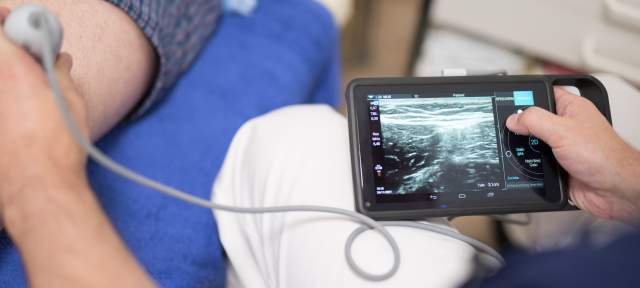
The Range of POCUS: Emergency Rooms to Vascular Access to Intensive Care Training
Did you know that Sonosite’s first mission was to create an ultrasound machine that could be carried into battle? The concept was simple: Get treatment to a trauma victim by giving a frontline clinician an ultrasound machine that could be brought to the patient’s side. Now point-of-care ultrasound is used around the world for an ever growing variety of clinical applications and procedures. Here's three user stories of how Sonosite systems have helped clinicians expand the range of what's possible using portable ultrasound. Quick and Acurate Vascular AccessThe Children’s Acute…
Ultrasound and Changes in Value-Based Care - Part 1
Uncertainty – especially in economics, government, or healthcare - can be hard to handle. Combine a little bit of uncertainty in Washington D.C. and the medical community and you’ll have a window into 2017, a time when the future of the Affordable Health Care Act and the health sector is in flux. Is there a silver lining here? We believe so. 2017 presents an opportunity for healthcare providers to evaluate how technologies like ultrasound can solve their challenges. By expanding their use of ultrasound, we believe providers can attract more patients, increase their patients’ level of…
CMS Implements AUC Requirements for Advanced Imaging Services
HealthCare Business News
Jill Rathbun, Managing Partner at Galileo Consulting Group, Arlington, VA
The Centres for Medicare and Medicaid Services (CMS) have finalised the clinical areas that will be part of the new Appropriate Use Criteria requirements for the ordering of MRI, CT, PET and Nuclear Cardiology studies starting January 1, 2018. CMS has selected shoulder pain, including suspected rotator cuff injury, as one of the priority clinical areas. To learn more about these new requirements so that your practise can be prepared on January 1, 2018, please read the following article in the…
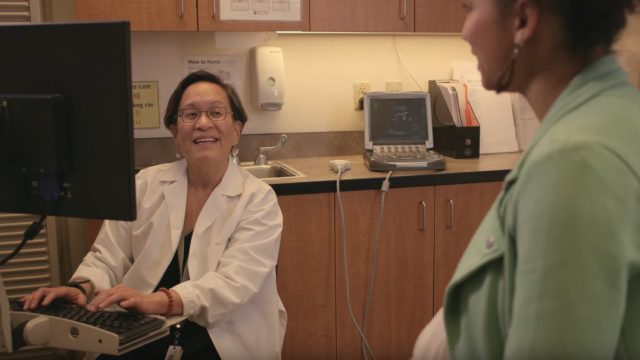
Ultrasound and Changes in Value-Based Care
Uncertainty – especially in economics, government, or healthcare - can be hard to handle. Combine a little bit of uncertainty in Washington D.C. and the medical community and you’ll have a window into 2017, a time when the future of the Affordable Health Care Act and the health sector is in flux.
Is there a silver lining here? We believe so. 2017 presents an opportunity for healthcare providers to evaluate how technologies like ultrasound can solve their challenges. By expanding their use of ultrasound, we believe providers can attract more patients, increase their patients’ level of…

Sonosite Edge II at the 2017 Gaes Titan Desert Race
The Gaes Titan Desert by Garmin is a 6-day endurance bike race over mountain terrain; the 2017 edition takes place in Morocco. From April 30-May 5, the Titan Desert saw over 463 top-level mountain bikers cover 380 miles of unyielding desert in gruelling conditions.Dr. Marc Bausili, an anaesthetist at the Sant Pau Hospital in Barcelona and a member of the Titan Desert medical team, knew what kind of injuries would be the most common, and what kind of equipment would be the most useful.“We knew from our experience of similar events,” says Bausili, “that with so many participants, and the…
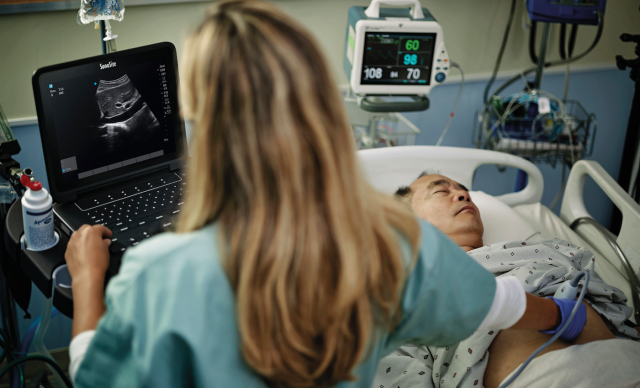
Treating Acute Pain Without Opioids
For the past 20-odd years in the United States, traumatic and acute conditions have often been treated in the Emergency Room using opioid drugs. Now, with the effects of a nationwide opioid addiction crisis becoming increasingly dire, hospitals and trauma centres are looking for new ways to treat pain without prescribing addictive opioid painkillers.The goal of reducing opioid prescriptions is especially important for patients who are recovering from addiction to opioids. The Huffington Post has published a video that follows one patient’s story as he recovers from a shattered femur at the…

Global Health: FUJIFILM Sonosite Donates Ultrasound Systems to Refugee Rescue Organisation
FUJIFILM Sonosite has donated two M-Turbo point-of-care ultrasound systems to the non-governmental sea rescue organisation Proactiva Open Arms, based in Badalona, Spain, to support efforts in rescuing refugees.Proaativa Open Arms specialises in surveillance and rescue missions of refugee-filled boats in the Aegean and Central Mediterranean seas. People fleeing civil war, poverty, and persecution in their own countries have headed for Southern European shores. Boats that break down in the water are abandoned by the operators (usually smugglers) and refugees are left stranded in the…

